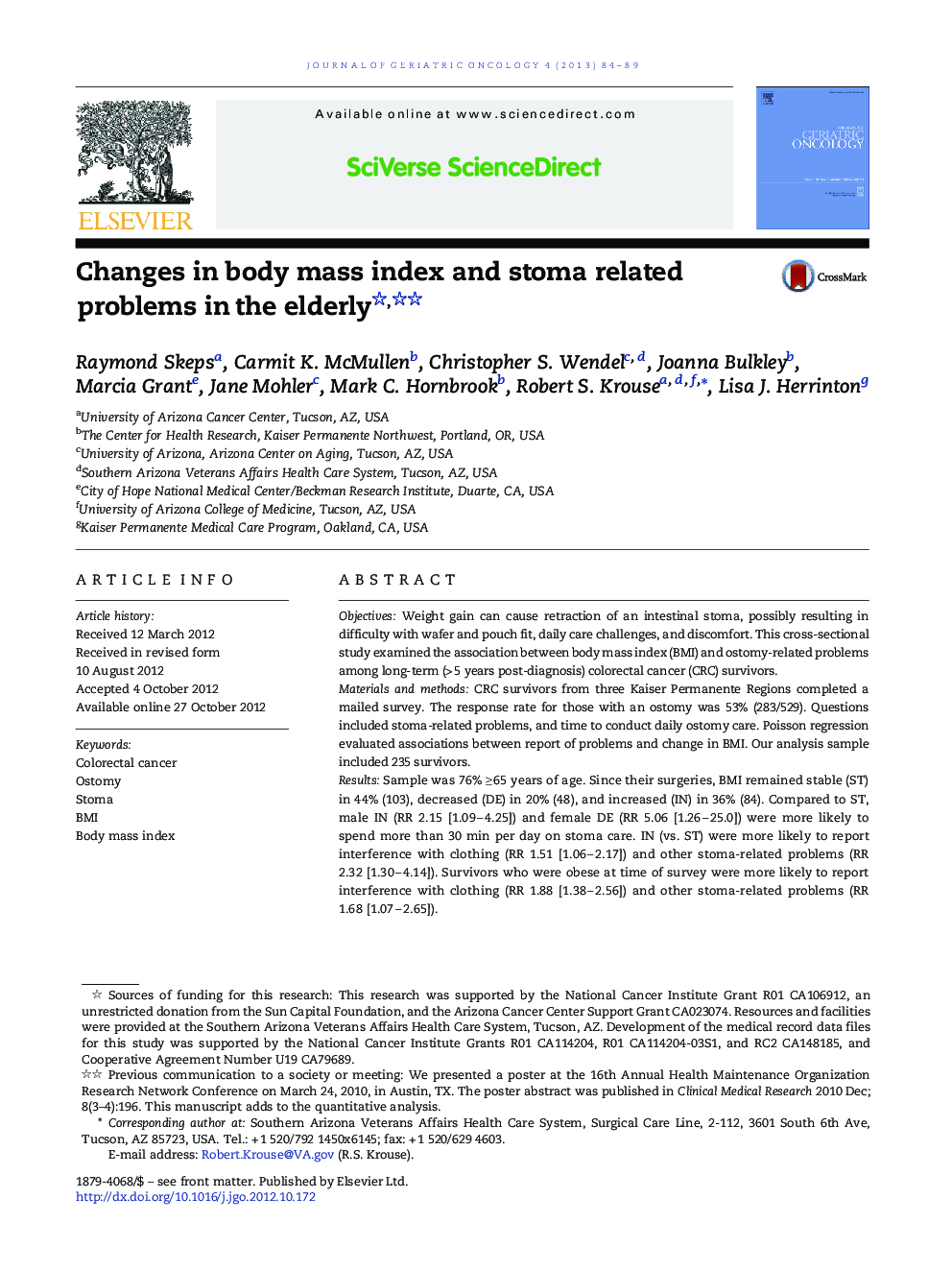| Article ID | Journal | Published Year | Pages | File Type |
|---|---|---|---|---|
| 1912907 | Journal of Geriatric Oncology | 2013 | 6 Pages |
ObjectivesWeight gain can cause retraction of an intestinal stoma, possibly resulting in difficulty with wafer and pouch fit, daily care challenges, and discomfort. This cross-sectional study examined the association between body mass index (BMI) and ostomy-related problems among long-term (> 5 years post-diagnosis) colorectal cancer (CRC) survivors.Materials and methodsCRC survivors from three Kaiser Permanente Regions completed a mailed survey. The response rate for those with an ostomy was 53% (283/529). Questions included stoma-related problems, and time to conduct daily ostomy care. Poisson regression evaluated associations between report of problems and change in BMI. Our analysis sample included 235 survivors.ResultsSample was 76% ≥ 65 years of age. Since their surgeries, BMI remained stable (ST) in 44% (103), decreased (DE) in 20% (48), and increased (IN) in 36% (84). Compared to ST, male IN (RR 2.15 [1.09 – 4.25]) and female DE (RR 5.06 [1.26 – 25.0]) were more likely to spend more than 30 min per day on stoma care. IN (vs. ST) were more likely to report interference with clothing (RR 1.51 [1.06 – 2.17]) and other stoma-related problems (RR 2.32 [1.30 – 4.14]). Survivors who were obese at time of survey were more likely to report interference with clothing (RR 1.88 [1.38 – 2.56]) and other stoma-related problems (RR 1.68 [1.07 – 2.65]).ConclusionA change in BMI is associated with ostomy-related problems among long-term CRC survivors. Equipment and care practices may need to be adapted for changes in abdominal shape. Health care providers should caution that a significant increase or decrease in BMI may cause ostomy-related problems.
